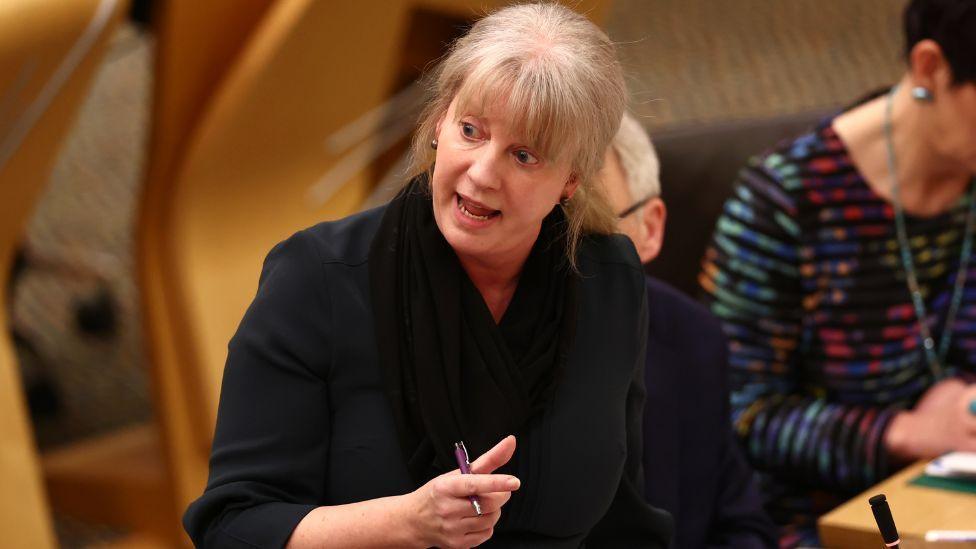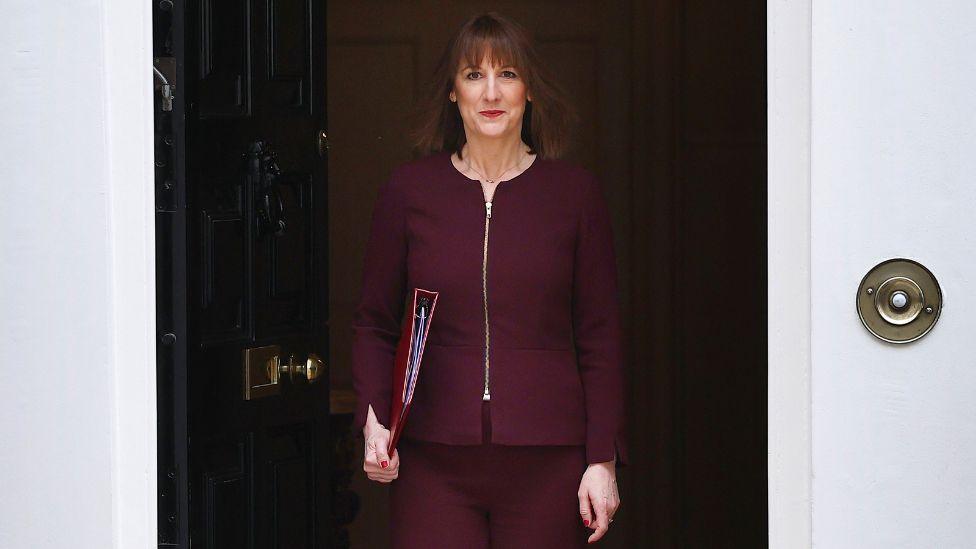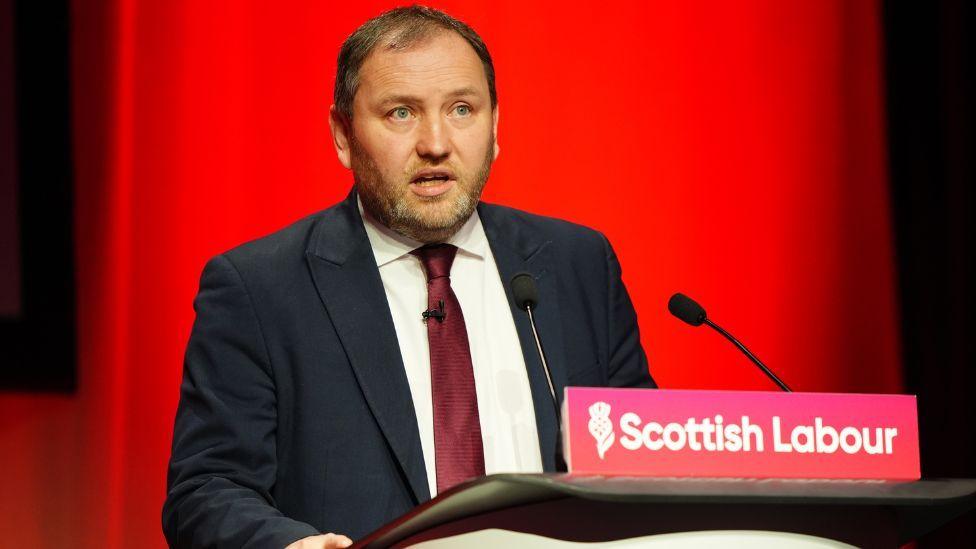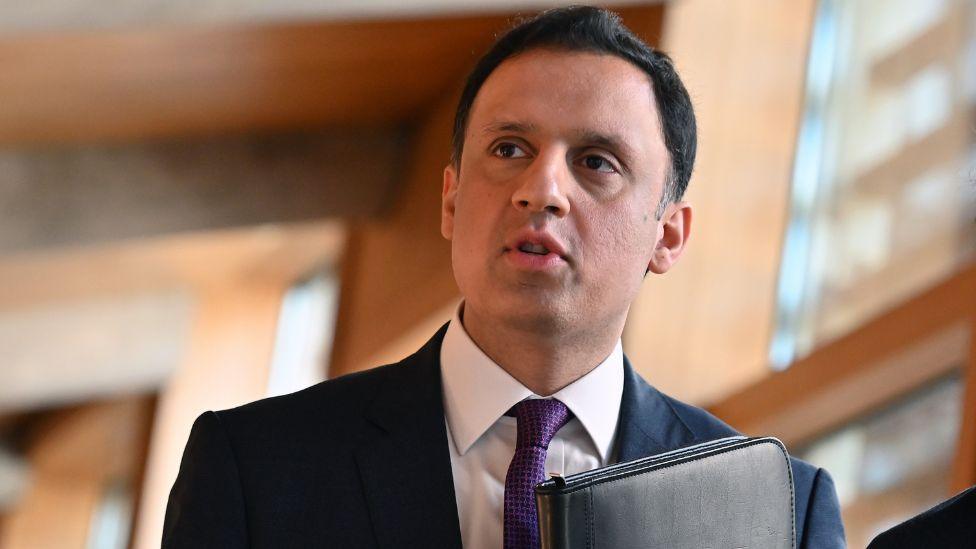Cuts needed to fund UK tax hike, says Robison

Shona Robison says the Scottish government is facing a "major shortfall"
- Published
The Scottish government will have to make cuts to public service budgets to cover an increase in employers' National Insurance, Finance Secretary Shona Robison has said.
It came after Chancellor Rachel Reeves announced welfare cuts and an increase in defence spending in her Spring Statement.
Robison said the announcement was "really grim news" for some of the most vulnerable in society.
But Scottish Secretary Ian Murray said the UK government was delivering the largest budget settlement in the history of devolution.
Reeves announced last year that the rate of employer National Insurance contributions is to increase from 13.8% to 15% in April, and the threshold at which it is paid would be lowered.
The Scottish government has estimated it will need about £550m to cover the increased costs for public sector workers, rising to £750m when indirect employees such as those in childcare, higher education or social care are included.
Robison told BBC Scotland News the Scottish government would receive a little more than £300m.
She described the funding gap as a "major shortfall" that would have to be found within public service budgets.

Chancellor Rachel Reeves announced an increase in defence spending in her Spring Statement
The Fraser of Allander Institute has forecast the welfare reforms in the Spring Statement would cut the Scottish government's budget by more than £400m by 2030.
Robison said it would be tough for the Scottish government to maintain its current level of welfare spending, which was already forecast to exceed Treasury funding for welfare by £1.3bn in 2025-26.
Robison told BBC Scotland News she supported increased spending on "conventional" defence, but not on Trident nuclear weapons.
She added: "Everybody recognises the changed world that we are in and the requirement for European countries to work together and make sure that we are able to defend ourselves and each other.
"That has changed the outlook for defence spending for all European countries."
She added: "Other countries have managed to do that in a way that is not on the backs of the poorest in society and that is the thing that is completely unacceptable with today's statement."

UK government minister Ian Murray says the Treasury has provided a record funding settlement for Holyrood
Murray said the Spring Statement would provide an extra £28m to the Scottish government in the coming financial year.
He told BBC Scotland News: "Spending is up, growth is up. More money in people's pockets. That's a really positive Spring Statement."
Murray said: "People at home will be looking across the border and seeing cranes in the sky in England, shovels in the ground and waiting lists coming down in the NHS.
"And they'll be thinking why are not getting it here and it's because that money is not being spent by the Scottish government in areas that are priorities for the Scottish people."
Murray said the increase in military spending was "great for Scotland" and added it would support jobs, boost economic growth and help the defence industry.
The Fraser of Allander Institute , externalagreed the Scottish government would receive an extra £28m in 2025-26 as a result of the chancellor's spending plans.
However, it said the Labour administration's proposals would make Holyrood's longer-term financial outlook "significantly more challenging".
The think tank reported the welfare reforms would lead to a £200m cut in Treasury funding for Scotland in 2028-29, and a £425m cut in 2029-30.
It said overall the Scottish government budget would be about £900m worse off by 2030 than was previously projected.
Murray said ministers would need to wait for a spending review in summer to confirm the financial impact of the statement.
'Brutal cuts'
In her statement, Reeves confirmed the UK government would spend 2.5% of GDP on defence by 2027.
This is to be funded by reducing overseas aid spending to 0.3% of gross national income.
The chancellor had already been criticised by Scottish ministers for plan to reduce welfare spending.
She announced further cuts after the Office for Budget Responsibility (OBR), a government spending watchdog, halved its growth forecast for 2025 from 2% to 1% - though it upgraded its longer-term growth estimates.
Reeves told MPs that health-related universal credit for new claimants, which was already due to be halved from April 2026, will also be frozen in cash terms until 2030.
The chancellor also confirmed there will be a stricter eligibility test for personal independence payments (Pips) from November 2026.
Cara Hilton, senior policy manager at Trussell in Scotland, said: "These brutal cuts to already precarious incomes won't help more disabled people find work, but they will risk forcing more people to skip meals and turn to food banks to get by."
Reeves squeezes benefits as 2025 growth forecast halved
- Published27 March
Changes announced to Universal Credit apply directly to Scottish claimants.
However, Pip is being phased out in Scotland and replaced by a new devolved benefit, the Adult Disability Payment.
Changes to Pip do nevertheless have a knock-on effect for the Holyrood budget, as the money Scotland receives from the Treasury to administer such benefits is linked to UK government spending on equivalent welfare south of the border.
This means a cut to spending on Pip in England would lead to reduced funds coming to Scotland.
Fraser of Allander director Prof Mairi Spowage said the Scottish government would have to make "difficult decisions" about funding for devolved disability benefits in future years, "or potentially find cuts in other areas".
She said further clarity would be provided in the spending review in June, but warned the financial outlook was "not likely to be pretty" in the coming years.
- Published5 February

- Published11 March
